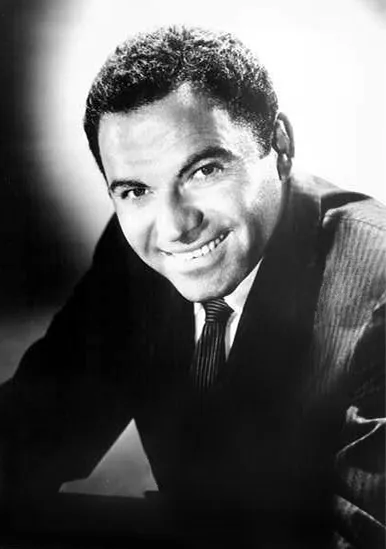In 2018, U.S. Immigration and Customs Enforcement agents conducted a significant workplace raid at a Tennessee slaughterhouse, resulting in the detention of nearly 100 undocumented Hispanic workers. This operation stands as one of the largest enforcement actions in U.S. history, highlighting the ongoing issue of immigration and labor practices in the country.
On April 5
19
Important Days
47
Important Events
772
Births and Deaths
recorded.
Holidays and Occasions
Events
Births and Deaths

The Cold Food Festival: Significance and Traditions
The Cold Food Festival, known as Hanshi Jie (寒食节) in Mandarin, is an ancient traditional festival celebrated predominantly in China. This unique festival falls on the 104th day after the winter solstice, which translates to the 4th of April during a leap year...

Sham el-Nessim: The Earliest and Latest Dates of This Egyptian Spring Holiday
Sham el-Nessim is a traditional Egyptian holiday that marks the arrival of spring, celebrated by Egyptians of various faiths. Falling on the Monday following Orthodox Easter, Sham el-Nessim is a day of rejuvenation and unity, linking the historical customs of ancient Egypt with contemporary society...

Children's Day Celebration in Palestine: A Day of Joy and Awareness
Every year, Children’s Day in the Palestinian territories is celebrated with joy and enthusiasm. This special day highlights the importance of childhood and the rights of children, bringing attention to the various challenges they face...

Celebrating First Contact Day: An Exploration of Humanity and Extraterrestrial Life
First Contact Day is a fascinating international observance that brings together science fiction enthusiasts, futurists, and those interested in the possibility of extraterrestrial life. Celebrated on April 5th each year, it commemorates the moment when humanity first makes contact with an alien civilization...

Discover Sikmogil: A Jewel in South Korea's Cultural Heritage
Sikmogil (식목일), often referred to as "Tree Planting Day," holds a special place in the hearts of South Koreans. Celebrated annually on April 5th, it is a day dedicated to environmental conservation and increasing awareness about the importance of trees and nature in our lives...

National Maritime Day in India: Commemorating SS Loyalty's Historic Voyage
National Maritime Day is celebrated annually in India on April 5th, honoring the first voyage of the SS Loyalty, which marked a significant milestone in the Indian maritime industry. This day commemorates the rich history of maritime transport in India and the immense contribution of the shipping industry to the nation’s economy...

International Day of Conscience: Understanding Its Importance and Impact
The International Day of Conscience is observed annually on April 5th to promote the importance of global awareness and personal responsibility. This day encourages individuals worldwide to partake in acts of kindness, promote peace, and reflect on their conscience...

April the Fifth: A Legendary British Thoroughbred Racehorse (1929–1954)
April the Fifth, a remarkable British Thoroughbred racehorse, was born in 1929 and became a significant figure in horse racing history. Known for his exceptional speed and agility, he captured the hearts of racing enthusiasts during his illustrious career...

Understanding the Fiscal Year in the United Kingdom: Ending on April 5th
The fiscal year is a crucial concept for both individuals and businesses in the United Kingdom, as it determines the financial reporting period for tax purposes. In the UK, the fiscal year ends on April 5th, which is unique compared to many other countries that typically align their fiscal years with the calendar year...

Albert of Montecorvino: The Missionary Who Brought Christianity to Asia
Albert of Montecorvino was a Franciscan missionary who played a monumental role in the spread of Christianity in Asia during the late 13th and early 14th centuries. His journey took him from Europe to the heart of Asia, most notably establishing a significant foothold in China...

Derfel Gadarn: The Legendary Warrior of Arthurian Lore
In the realm of Arthurian legends, where history intertwines with myth, the figure of Derfel Gadarn stands out as one of the most compelling warriors. His tale, filled with bravery, loyalty, and valor, offers a unique perspective on the stories surrounding King Arthur and his Knights of the Round Table...

Æthelburh of Kent: The Influential Christian Queen
Æthelburh of Kent, often overshadowed by her more famous relatives, was a pivotal figure in the early days of Christianity in England. As a queen consort of Kent in the 6th century, her role was vital in bridging the gap between pagan traditions and the new Christian faith that was beginning to take root in the British Isles...

Exploring the Life and Legacy of Gerald of Sauve-Majeure
Gerald of Sauve-Majeure, a prominent figure in medieval history, is renowned for his influential role as a scholar, theologian, and an exceptional leader in the vibrant community of Sauve-Majeure in France. His contributions to religious thought and local governance during the late 12th century mark significant periods in ecclesiastical history...

Rediscovering Juliana of Liège: The Visionary and Her Spiritual Legacy
Juliana of Liège (c. 1192–1258) was a remarkable figure in the history of medieval spirituality, known predominantly for her life of deep piety, mystical visions, and significant contributions to the Catholic faith...

Maria Crescentia Höss: A Pioneer of Spirituality and Education
Maria Crescentia Höss (1682-1744) was a remarkable figure in the history of spirituality and educational reform in the early 18th century. Known for her deep devotion and commitment to education, she became a source of inspiration for many believers and educators...

Discover Blessed Mariano de la Mata: The Saint of Charity and Faith
In the rich tapestry of Catholic history, many figures have shone brightly through their devotion and service. Among them stands Blessed Mariano de la Mata, a remarkable priest whose life was dedicated to the poor and marginalized in society...

Pandita Mary Ramabai: Champion of Women's Rights and Education
Pandita Mary Ramabai (1858-1922) was a remarkable figure in Indian history, celebrated not only for her contributions to women's rights and education but also for her work within the Episcopal Church in the United States. As a pioneering social reformer, her legacy continues to inspire countless individuals around the globe...

Ruadhán of Lorrha: The Legacy of a Celtic Saint
Ruadhán of Lorrha is a significant figure in Irish history, known for his role as a saint and an influential leader within the Celtic Church during the early medieval period. His story is rich with spiritual significance and historical value, reflecting the development of Christianity in Ireland...

Vincent Ferrer: The Apostle of the End Times
Vincent Ferrer, a Spanish Dominican preacher and saint, is widely recognized for his extraordinary missionary work in the late 14th and early 15th centuries. Born on January 23, 1350, in Valencia, Spain, he emerged as a pivotal figure during a tumultuous period marked by the Western Schism of the Catholic Church...


























